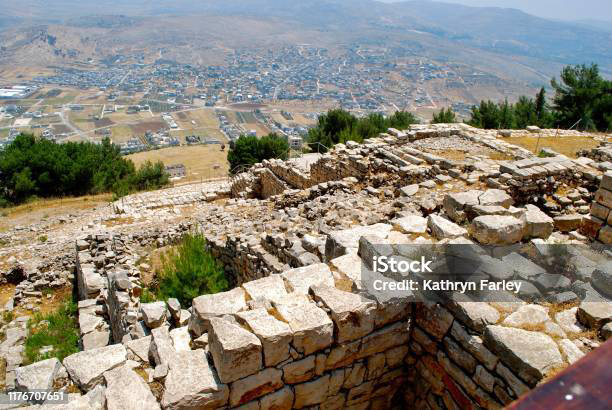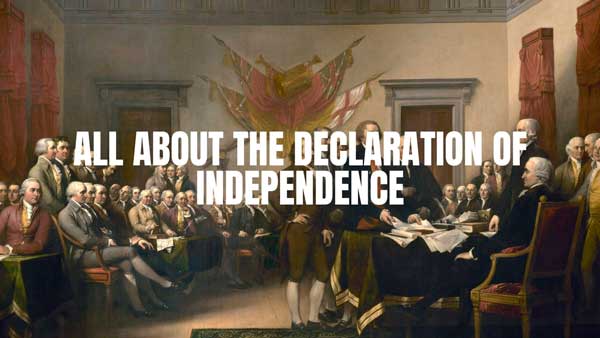
2025 Sun June 29
Here and There on the Web

1. Journaling in Ordinary Time
Journaling can provide breadth and depth to spiritual practices. Plus it is helpful for jotting notes about an activity or friend.
2. Good Book Club with the Psalms
Sign up at the above link covering all 150 Psalms. June sessions will be hosted by Forma and July sessions by Forward Movement. Thursdays at 3:00 p.m. June 4-July 31, 2025. Connect with interested people about the Psalms all over the world for stimulating discussions.
3. Try out AI about the Episcopal Church, hosted by the church You can access it any time
4. Silence “Silence isn’t simply the absence of noise it is the delivery of divine presence. Silence is the medicine for the tyranny of anxiety. Silence is a fierce warrior against all falsehood. Silence reveals the connective tissue between us God and all creation. Happy Summer!” Rev. Rob Wright, Diocese of Atlanta 1 Kings 19:1-15″
Sunday Links, Pentecost 3, June 29, 2025
Recent Articles, Pentecost 3, June 29, 2025

“Summer at St. Peter’s”
 Pentecost 3
Pentecost 3
Lectionary Pentecost 3, Year C
Pentecost 3 Proper 8, Year C
Visual Lectionary Pentecost 3
Who are the Samaritans
Introduction to Galatians
A Weekful of Saints
July 4 at St. Peter’s
July 4, the history
Here and There on the Web – miscellaneous discoveries
Anything but Ordinary! Ordinary Time
Pentecost 3 Proper 8, Year C
I. Theme – Our relationship with God always comes at a price

The lectionary readings are here or individually:
First Reading – 1 Kings 19:15-16,19-21 Psalm – Psalm 16 Epistle –Galatians 5:1,13-25 Gospel – Luke 9:51-62
Today we learn that our relationship with God always comes at a price. In 1 Kings, we hear the story of how God first called Elisha as Elijah’s successor. Paul urges the Galatians to use their spiritual freedom to live in the Spirit. Jesus teaches his disciples the cost of following him.
What a familiar response we hear to the call to discipleship in today’s stories. When Elijah anoints Elisha to be his successor, Elisha begs to return home first to say farewell to his family. Elijah grants him leave. This does not seem to be an unreasonable request.
By contrast, Jesus dismisses with blunt retorts the excuses to put off following him. Why does Jesus sound so irascible and demanding? Does he really require such total renunciation of all natural and material considerations of every would-be follower? We know that most of the time we can look on Jesus’ own life as a model for ours. And he had gone exactly to this extent to serve God. He had renounced home, family and worldly possessions, even to having “nowhere to lay his head.”
Perhaps this is one of the times we are justified in interpreting a New Testament scene in the light of its historical context. Jesus knew he was on his way to death in Jerusalem. He had just been refused even basic accommodations in a Samaritan village. His message and ministry had been met generally with rejection, apathy, controversy, misunderstanding and open opposition. Time was running out. He was faced with finding a band of followers whose dedication would be equal to the task of continuing his mission after he was gone.
Nothing but total detachment from normal life would qualify them for such an awesome calling. Jesus’ disciples needed to know the urgency and the primacy of the commitment. In the passage we have read today, Jesus was in the process of sorting out the ones who could meet the cost of discipleship at that particular time.
Such detachment is not a blanket assignment for all Christians. The Church is perpetuated largely by Christians who live normal lives involving family, home, work and participation in society in general.
Some are called to religious orders or into the mission field or work among the needy. They are called to follow Jesus’ example in renunciation of natural and material attachments in order to be totally consecrated to their mission. The Church has been richer and more inspired because of their commitment.
To those of us who are not called in such a way, the example of self-denial and self-discipline remains a vital factor of our discipleship. We still have to count the cost of following Jesus. We still have to make service to God our first priority and acknowledge God as our “good above all other.” However we choose to serve and follow the lord, it is the Spirit who enables us to do it. The Spirit does set us free from being overly concerned about our earthly ties and treasures. The whole law is fulfilled as we love our neighbors as ourselves.
We know that God keeps God’s end of the covenant, even when we go astray, even when we have willfully rejected God, God cannot reject us. It is our own rejecting of God that separates us, our own clinging to worldly ways and values that keeps us from following God’s ways of love and justice. It is this failure to leave worldly understandings that built up the walls between Jewish and Gentile believers in Paul’s day, and causes us to continue to keep walls and boundaries between others today. We are called to break down those walls by following Jesus, and we are called to leave those worldly values and understandings behind.
In the spirit of the passage from Galatians, God is moving through every aspect of our personal and congregational life, bringing all of the strands together in ways that promote wholeness individual, community, and planet. We need to let go of egocentrism and self-interest, to seek the well-being of our most vulnerable companions and to express God’s love in deed and word. Such actions are bold indeed; they will cost us something, but they will also bring us more than we can ask and imagine in blessings and power to heal the Earth. Grace enables us to become large-souled persons who see our own well-being and the well-being of others as intimately connected.
Visual Lectionary Vanderbilt, Third Sunday after Pentecost, June 29, 2025
Click here to view in a new window.
Gospel this week – Who are the Samaritans?
Research indicates Samaritans emerged as a distinct community during the Persian (550-330 BCE) and Hellenistic periods (323-31 BCE), solidifying their identity in opposition to the Jewish community centered in Jerusalem. The construction of their temple on Mount Gerizim, possibly in the 5th or 4th century BCE, marked a definitive split, establishing a rival center of worship to the Jerusalem Temple.
 Mt. Gerizim.
Mt. Gerizim.
Samaritanism shares many foundational elements with Judaism, yet differing significantly in key aspects. Their sacred text is the Samaritan Pentateuch, their version of the first five books of Moses (Genesis, Exodus, Leviticus, Numbers, Deuteronomy). They reject all other books of the Hebrew Bible (Prophets and Writings) and the Oral Law (Mishnah, Talmud) that are central to rabbinic Judaism.
Introduction to Galatians
We will be reading Galatians as the Epistle on June 22, 29 and July 6. Here is some background to Paul’s letter.

In the face of Jewish opposition, the southern region of Galatia had been fertile soil for Paul’s ministry as he traveled with his companion, Barnabas, through cities recorded by Luke in Acts 13 and 14 . However, after Paul left the area of Galatia he received news that some trouble-makers were agitating the believers . Although Paul was not completely sure of the identity of his opponents (Galatians 5:10), apparently a group of Jewish Christians, or possibly local Jews, were teaching that submission to the Jewish law was a requirement of salvation. Paul’s letter to the Galatians was a result of the challenges the Galatians were facing, but also reflected a continuing debate regarding the applicability of the Torah in Jerusalem and Antioch in Syria.
Paul’s opponents viewed adherance to the law as an integral part of maintaining and, likely, procuring a relationship with God . In order to further their agenda, the agitators attempted to undermine Paul’s authority, claim Paul’s gospel was not true, and charge that the gospel preached by Paul would lead to immorality. Paul addressed the issues of the law with various arguments.
The crucial language utilized by Paul arguing for the sufficiency of the Christian faith climaxes with “I have been crucified with Christ; and it is no longer I who live, but Christ lives in me” (Galatians 5:20) which naturally leads to the recognition that righteousness, which the Jewish Christians were attempting to accomplish through the futility of human effort, can only be realized by grace via faith. In other words, “Christ in me” imputes righteousness not the Law, otherwise, “Christ died needlessly” (Galatians 5:21-3:2).
Longenecker in the book The Cambridge Companion to St Paul identifies four significant Pauline points which decimate the opponent’s gospel which, of course, is no gospel at all (Galatians 1:6-7):
1 Morality –Paul emphasizes that a morality is central to a life with Christ. This righteousness frees believers from the need to acquire significance or justification from immoral idolatries such as human performance by realizing the very thing we are striving for already exists.
2 The Law -Paul explains the entirety of the Law is fulfilled in one word: “Love your neighbor as yourself” (Galatians 5:14). In other words, through “service to others the expectations of the law are fully concretized in unrivalled fashion.” Self-giving is magnified completely fulfilling the Law in an unbridled extension of love for others.
3. Walk in the Spirit. Paul refers metaphorically to the purpose of the law as pedagogue (Galatians 3:24) which is “relieved of its duty once the child comes of age,” just as the function of the law terminated with Christ’s arrival Accordingly, Paul now directs us to “walk by the Spirit” not by the Law, for if led by the Spirit, we are not under the Law (Galatians 5:16-17).
4. Finally, Paul plunges a dagger into the motivation of his opponents by accusing them of championing teaching of the law for the purpose of self-promotion Galatians 4:17).
A Weekful of Saints!
Collect for this week – “Almighty God, you have built your Church upon the foundation of the apostles and prophets, Jesus Christ himself being the chief cornerstone: Grant us so to be joined together in unity of spirit by their teaching, that we may be made a holy temple acceptable to you; through Jesus Christ our Lord, who lives and reigns with you and the Holy Spirit, one God, for ever and ever. Amen.”
June 25th – Nativity of John the Baptist

The Birth of John the Baptist, or Nativity of the Forerunner) is a Christian feast day celebrating the birth of John the Baptist, a prophet who foretold the coming of the Messiah in the person of Jesus and who baptized Jesus. The day of a Saint’s death is usually celebrated as his or her feast day, but Jesus, the Virgin Mary and Saint John the Baptist, while not being exceptions to this rule also have feast days that celebrate their earthly birth. The reason is that St. John (Luke 1:15), like the Blessed Virgin, was purified from original sin before his very birth (in Catholic doctrine), though not in the instant of conception as in the latter case.
June 28 – Irenaeus

Irenaeus (125?-202) was an early Church father, having been taught by Polycarp, who had been taught by John the Evangelist.
During the persecution of Marcus Aurelius, the Roman Emperor from 161-180 the clergy of that city, many of whom were suffering imprisonment for the faith, sent him in 177 to Rome with a letter to Pope Eleuterus concerning heresy. While Irenaeus was in Rome, a massacre took place in Lyons. Returning to Gaul, Irenaeus succeeded the martyr Saint Pothinus and became the second Bishop of Lyon, the main trading port for Western Gaul (France). During the religious peace which followed the persecution of Marcus Aurelius, the new bishop divided his activities between the duties of a pastor and of a missionary.
We remember him for two things – his work against Gnosticism and the recognition of the four gospels. He apparently did well there, becoming an influential leader against the rising heterodoxy Gnosticism. He first used the word to describe heresies . The Gnostics saw the world as material, and leaves much room for improvement and they denied that God had made it. They saw Jesus more as a spirit than a real flesh human . Before Irenaeus, Christians differed as to which gospel they preferred. Irenaeus is the earliest witness to recognize the four authentic gospels, the same we have today. Irenaeus is also our earliest attestation that the Gospel of John was written by John the apostle and that the Gospel of Luke was written by Luke, the companion of Paul.
June 29 – Feast of Peter and Paul

The Feast of Saints Peter and Paul commemorates the martyrdom in Rome of the apostles St. Peter and Paul of Tarsus, observed on June 29. The celebration is of ancient origin, the date selected being either the anniversary of their martyrdom in 67AD or of the translation of their relics. They had been imprisoned in the famous Mamertine Prison of Rome and both had foreseen their approaching death. Saint Peter was crucified; Saint Paul, a Roman citizen, was slain by the sword. Together they represent two different Christian traditions.
Why do we remember them ? Peter is pictured on the left with the keys – the keys to the kingdom. In Matthew 16, Christ says ” And so I say to you, you are Peter, and upon this rock I will build my church, and the gates of the netherworld shall not prevail against it. I will give you the keys to the kingdom of heaven.” They keys since then have been symbols of Papal power. Peter represents that part of the Church which gives it stability: its traditions handed down in an unbroken way from the very beginnings, the structures which help to preserve and conserve those traditions, the structure which also gives consistency and unity to the Church, spread as it is through so many races, cultures, traditions, and geographical diversity
Paul is pictured with the Bible. He, on the other hand, represents the prophetic and missionary role in the Church. It is that part of the Church which constantly works on the edge, pushing the boundaries of the Church further out, not only in a geographical sense but also pushing the concerns of the Church into neglected areas of social concern and creatively developing new ways of communicating the Christian message. This is the Church which is constantly renewed, a Church which needs to be constantly renewed
Anything but Ordinary! Ordinary Time
 Beginning on Pentecost 2, we enter the Church year known as Ordinary Time. After Easter, Jesus’s ascension into heaven, and the coming of the Holy Spirit to us at Pentecost, we accept responsibility for being and becoming Christ’s body in the world. We are called by Jesus to live in community, our lives together guided not only by the example of Jesus, but by the guidance of the Holy Spirit.
Beginning on Pentecost 2, we enter the Church year known as Ordinary Time. After Easter, Jesus’s ascension into heaven, and the coming of the Holy Spirit to us at Pentecost, we accept responsibility for being and becoming Christ’s body in the world. We are called by Jesus to live in community, our lives together guided not only by the example of Jesus, but by the guidance of the Holy Spirit.
Basically, Ordinary Time encompasses that part of the Christian year that does not fall within the seasons of Advent, Christmas, Lent, or Easter. Ordinary Time is anything but ordinary. According to The General Norms for the Liturgical Year and the Calendar, the days of Ordinary Time, especially the Sundays, “are devoted to the mystery of Christ in all its aspects.” We continue our trek through the both the Gospels of Luke and John- through parables challenges, healings – some great stories and teachings.
Vestments are usually green, the color of hope and growth. Green has long been associated with new life and growth. Even in Hebrew in the Old Testament, the same word for the color “green” also means “young.” The green of this season speaks to us as a reminder that it is in the midst of ordinary time that we are given the opportunity to grow.
Ordinary Time, from the word “ordinal,” simply means counted time (First Sunday after Pentecost, etc.). we number the Sundays from here on out in order from the First Sunday after Pentecost, all the way up to the Last Sunday after Pentecost The term “ordinary time” is not used in the Prayer Book, but the season after Pentecost can be considered ordinary.
The Church counts the thirty-three or thirty-four Sundays of Ordinary Time, inviting her children to meditate upon the whole mystery of Christ – his life, miracles and teachings – in the light of his Resurrection.
You may see Sundays referred to as “Propers”. The Propers are readings for Ordinary Time following Epiphany and Pentecost, numbered to help establish a seven day range of dates on which they can occur. Propers numbering in the Revised Common Lectionary begins with the Sixth Sunday in Epiphany, excludes Sundays in Lent through Pentecost and Trinity Sunday, and resumes the Second Sunday after Pentecost (the first Sunday after Pentecost is Trinity Sunday), usually with Proper 4.
In some ways, it might be right to think of this time as “ordinary”, common or mundane. Because this is the usual time in the church, the time that is not marked by a constant stream of high points and low points, ups and downs, but is instead the normal, day-in, day-out life of the church. This time is a time to grapple with the nuts and bolts of our faith, not coasting on the joy and elation of Christmas, or wallowing in the penitential feel of Lent, but instead just being exactly where we are, and trying to live our faith in that moment.
It is a reminder of the presence of God in and through the most mundane and ordinary seasons of our lives. . It is a reminder that when God came and lived among us in the person of Jesus Christ, he experienced the same ordinary reality that we all experience. And that God, in Christ, offered us the opportunity to transform the most ordinary, mundane experiences into extraordinary events infused with the presence of God. God is there, present in the midst of the ordinary, just waiting for us to recognize it.
Only when the hustle and bustle of Advent, Easter, and Lent has calmed down can we really focus on what it means to live and grow as Christians in this ordinary time in this ordinary world. It is a time to nurture our faith with opportunities for fellowship and reflection. It is a time to feed and water our faith with chances for education and personal study. It is a time to weed and prune our faith, cutting off the parts that may be dead and leaving them behind. And we have a lot of growing to do, so God has given us most of the church year in which to do it.

